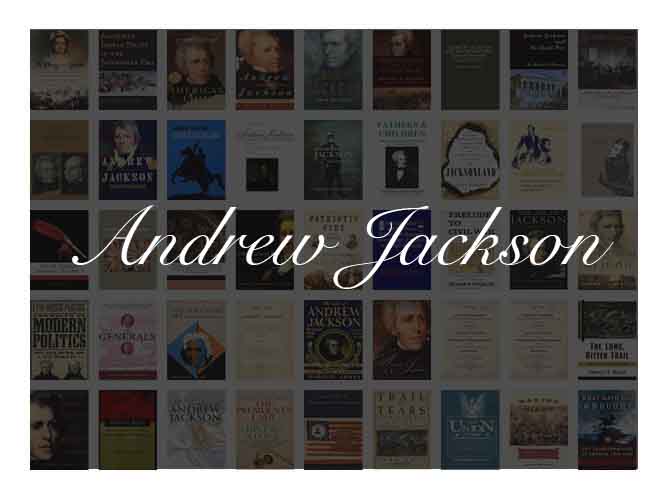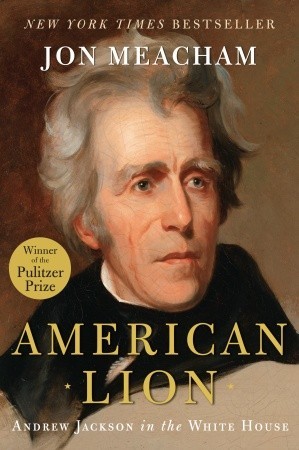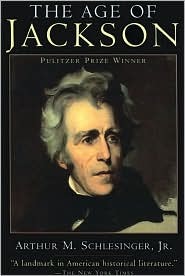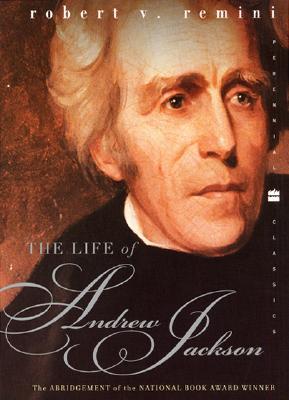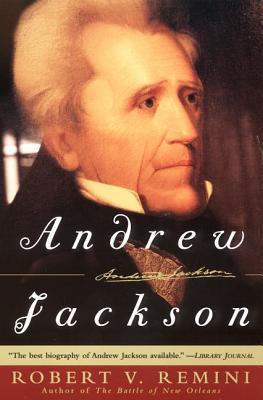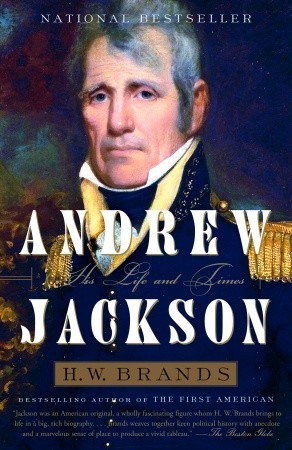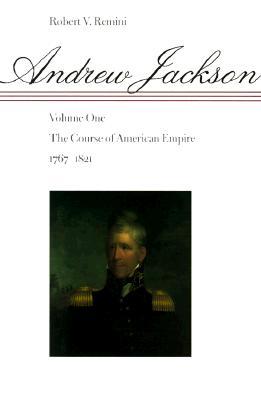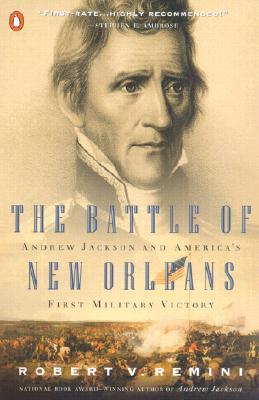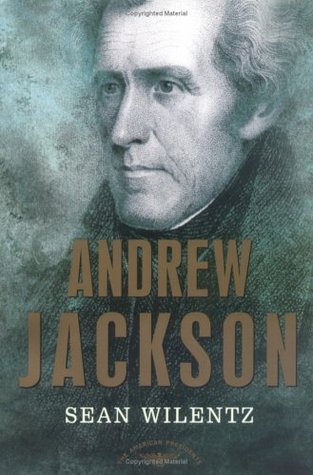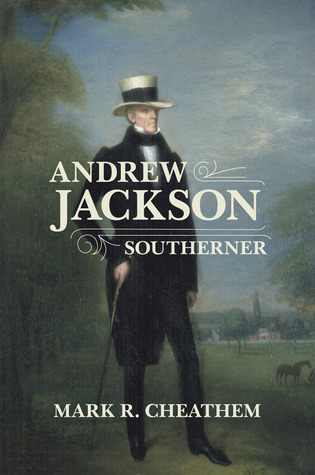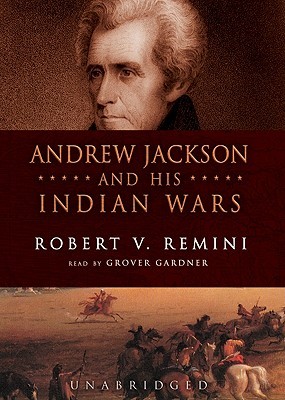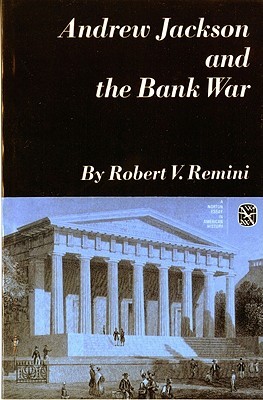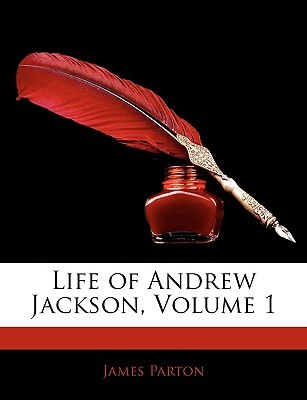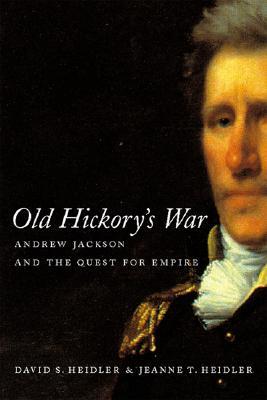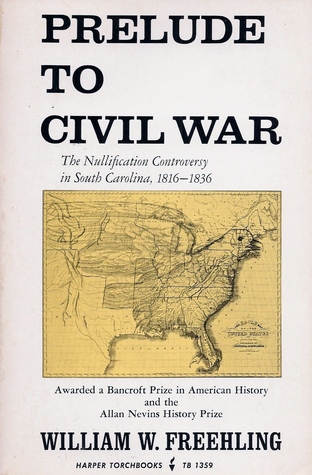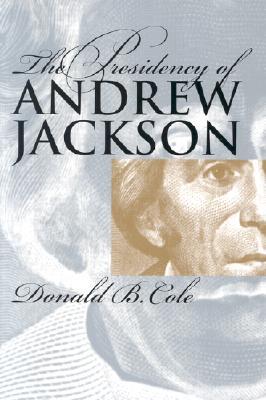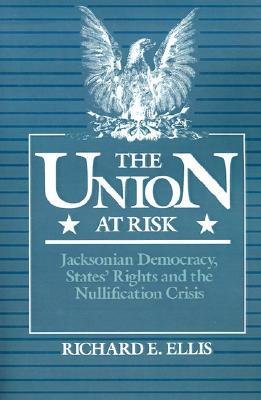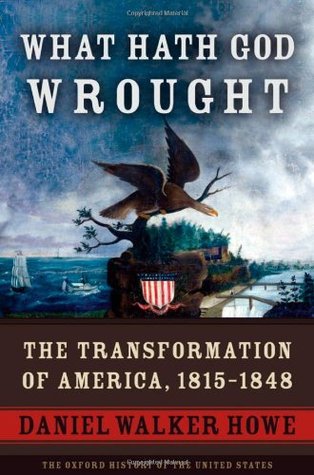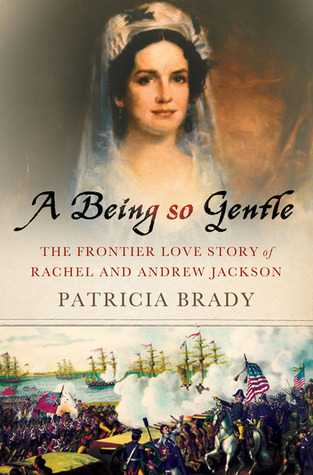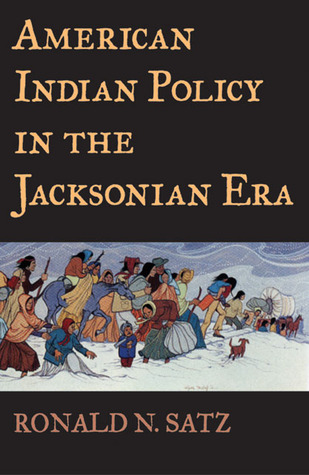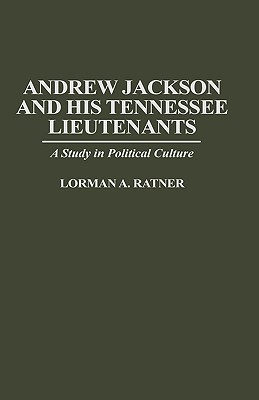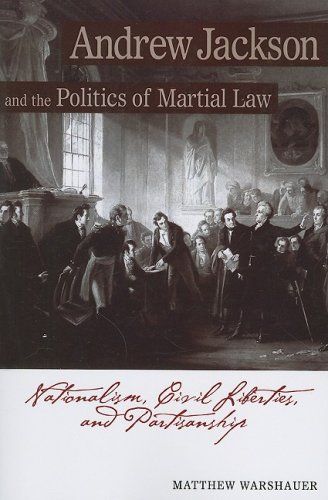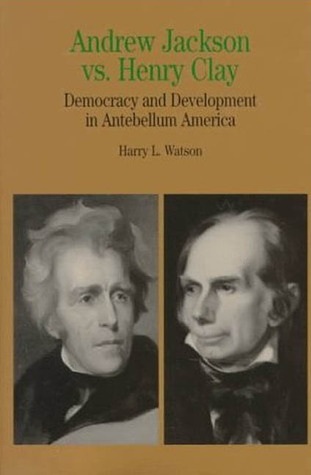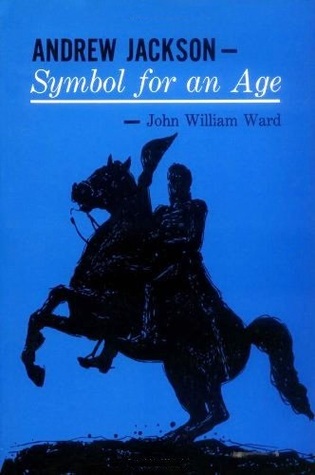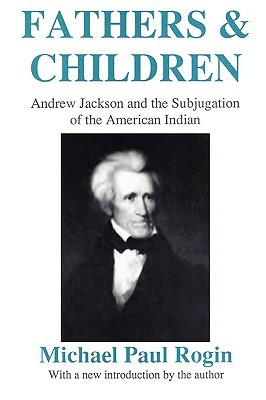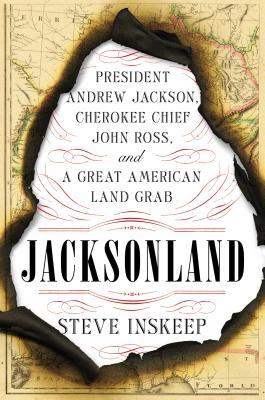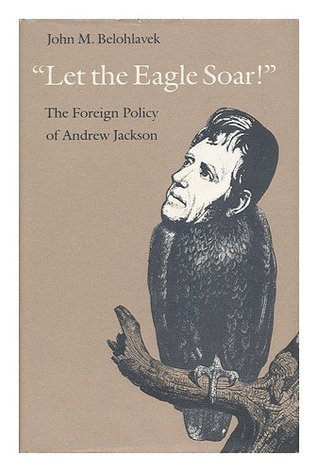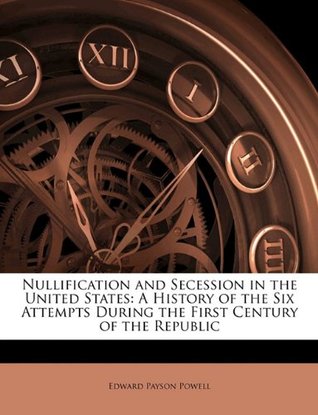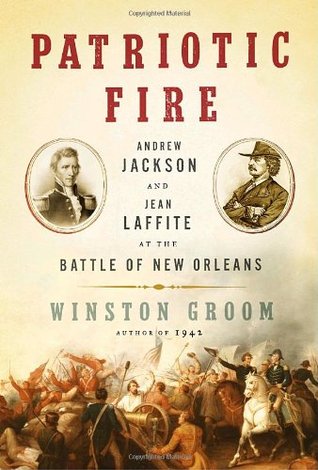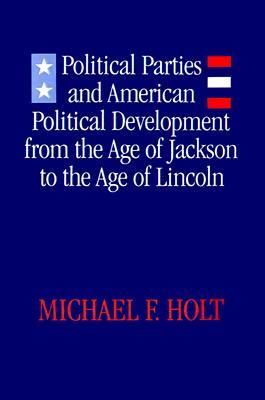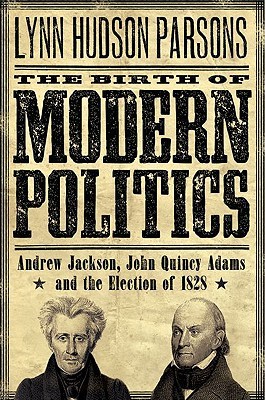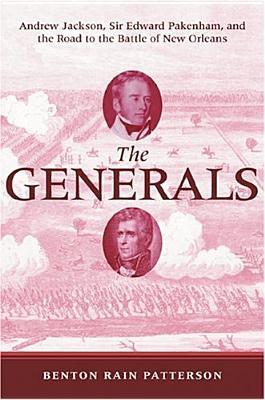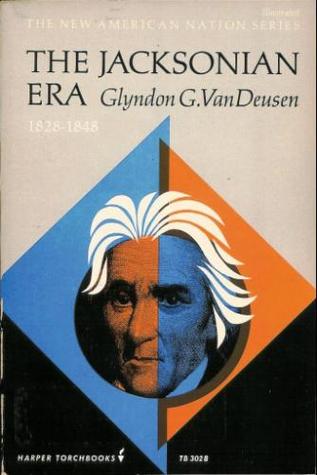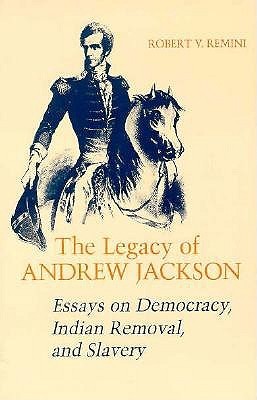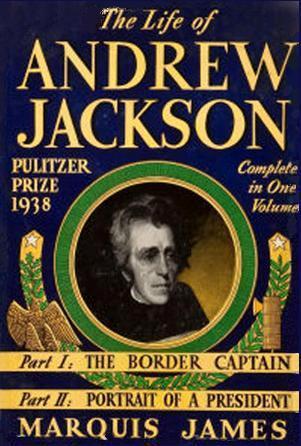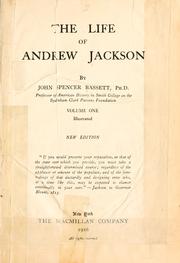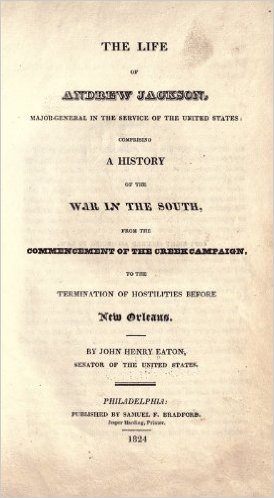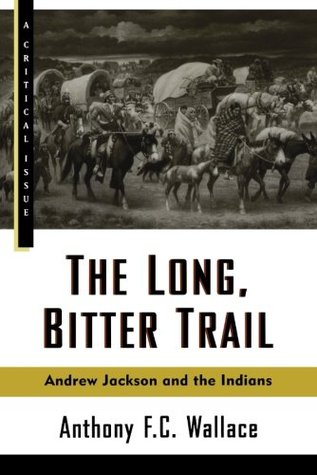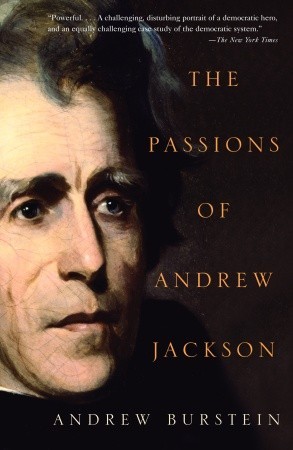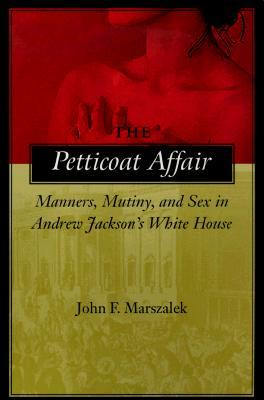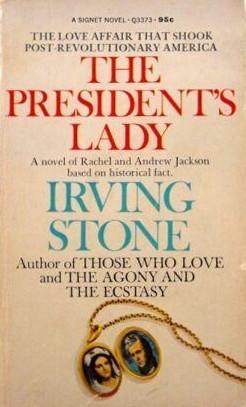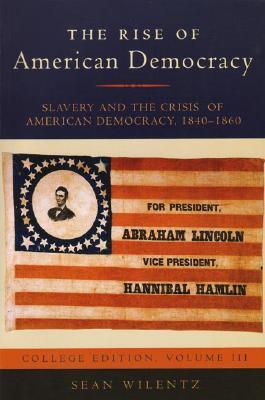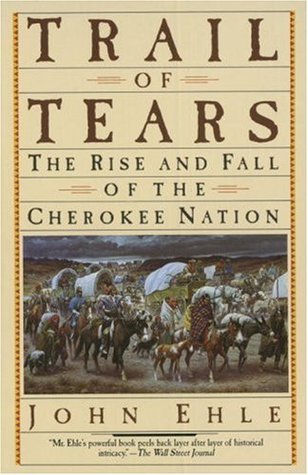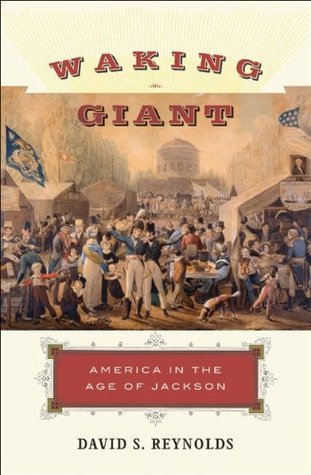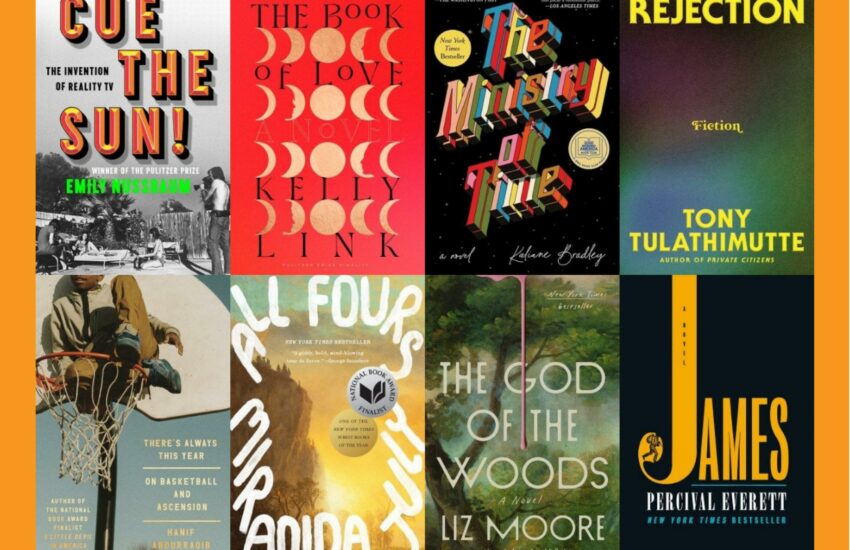The Best Books To Learn About President Andrew Jackson
(You can view the rest of our presidential Best Book lists by going to our Best US President Books page, or for a more in-depth look at how we found and ranked the books you can visit our Best Book About Every United States President article.)
Andrew Jackson Quick Facts |
| President Number | 7 |
| Terms In Office | 2 |
| Years | 1829-1837 |
| Political Party | Democratic |
| Vice President | John c. Calhoun (Resigned) & Martin Van Buren |
| Home State | Tennessee |
| Slaves Owned | 200ish |
| Presidential Pet | Fighting Cocks |
| # of People Named Charles Dickinsons Killed in Duels | 1 |
| Articles Used in Ranking | 14 |
| Number of Unique Books | 44 |
Happy Scrolling!
The Best Book About Andrew Jackson
(Appears on 7 Lists)
American Lion: Andrew Jackson in the White House by Jon Meacham
- At Times Dull
- Best Presidential Bios
- Jungle Find
- Library of Congress
- Presidential History
- Presidents USA
- The Washington Post
Andrew Jackson, his intimate circle of friends, and his tumultuous times are at the heart of this remarkable book about the man who rose from nothing to create the modern presidency. Beloved and hated, venerated and reviled, Andrew Jackson was an orphan who fought his way to the pinnacle of power, bending the nation to his will in the cause of democracy. Jackson’s election in 1828 ushered in a new and lasting era in which the people, not distant elites, were the guiding force in American politics. Democracy made its stand in the Jackson years, and he gave voice to the hopes and the fears of a restless, changing nation facing challenging times at home and threats abroad. To tell the saga of Jackson’s presidency, acclaimed author Jon Meacham goes inside the Jackson White House. Drawing on newly discovered family letters and papers, he details the human drama–the family, the women, and the inner circle of advisers–that shaped Jackson’s private world through years of storm and victory.
#2 Book
(Appears on 5 Lists)
The Age of Jackson by Arthur Schlesinger
- Best Presidential Bios
- Jungle Find
- Library of Congress
- Presidents USA
- The Tailored Man
This volume, by the great American historian Arthur M. Schlesinger embraces the the Age of Andrew Jackson from its inception to its influence upon the history of our country. It captures the historical, cultural, economic and political life of the United States as it grew from Jefferson’s day to the violent early eruptions of financial and industrial forces that threatened the basic principles of our constitutional democracy.
#3
(Appears on 4 Lists)
The Life of Andrew Jackson by Robert V. Remini
- Best Presidential Bios
- Library of Congress
- Mandi Lindner
- The Washington Post
The classic one-volume abridgement of the definitive, three-volume, National Book Award-winning biography of Andrew Jackson from esteemed historian Robert V. Remini.
#4-9
(Appear on 3 Lists)
Andrew Jackson by Robert V. Remini
- Library of Congress
- Mashable
- Presidential History
By “the foremost Jacksonian scholar of our time” (New York Times), the critically acclaimed and most concise biography of Andrew Jackson that takes a comprehensive look at the political, personal, and military life of the seventh president of the United States.
Andrew Jackson: His Life and Times by H.W. Brands
- Best Presidential Bios
- Jungle Find
- Library of Congress
With the sweep, passion, and attention to detail that made The First American a Pulitzer Prize finalist and a national bestseller, historian H.W. Brands shapes a historical narrative that’s as fast-paced and compelling as the best fiction. He follows Andrew Jackson from his days as rebellious youth, risking execution to free the Carolinas of the British during the Revolutionary War, to his years as a young lawyer and congressman from the newly settled frontier state of Tennessee. As general of the Tennessee militia, he put down a massive Indian uprising in the South, securing the safety of American settlers, and his famous rout of the British at the Battle of New Orleans during the War of 1812 made him a national hero.
Andrew Jackson: The Course of American Empire (Vol I) by Robert V. Remini
- Best Presidential Bios
- Jungle Find
- Library of Congress
Available in paperback for the first time, these three volumes represent the definitive biography of Andrew Jackson. Volume One covers the role Jackson played in America’s territorial expansion, bringing to life a complex character who has often been seen simply as a rough-hewn country general. Volume Two traces Jackson’s senatorial career, his presidential campaigns, and his first administration as President. The third volume covers Jackson’s reelection to the presidency and the weighty issues with which he was faced: the nullification crisis, the tragic removal of the Indians beyond the Mississippi River, the mounting violence throughout the country over slavery, and the tortuous efforts to win the annexation of Texas.
The Battle of New Orleans: Andrew Jackson and America’s First Military Victory by Robert V. Remini
- Jungle Find
- Library of Congress
- Presidents USA
The Battle of New Orleans was the climactic battle of America’s “forgotten war” of 1812. Andrew Jackson led his ragtag corps of soldiers against 8,000 disciplined invading British regulars in a battle that delivered the British a humiliating military defeat. The victory solidified America’s independence and marked the beginning of Jackson’s rise to national prominence. Hailed as “terrifically readable” by the Chicago Sun Times, The Battle of New Orleans is popular American history at its best, bringing to life a landmark battle that helped define the character of the United States.
Andrew Jackson by Sean Wilentz
- All The Presidents Books
- Jungle Find
- Library of Congress
The Founding Fathers espoused a republican government, but they were distrustful of the common people, having designed a constitutional system that would temper popular passions. But as the revolutionary generation passed from the scene in the 1820s, a new movement, based on the principle of broader democracy, gathered force and united behind Andrew Jackson, the charismatic general who had defeated the British at New Orleans and who embodied the hopes of ordinary Americans. Raising his voice against the artificial inequalities fostered by birth, station, monied power, and political privilege, Jackson brought American politics into a new age.
Andrew Jackson – Southerner by Mark R. Cheathem
- Library of Congress
- Presidential History
- Presidents USA
Many Americans view Andrew Jackson as a frontiersman who fought duels, killed Indians, and stole another man’s wife. Historians have traditionally presented Jackson as a man who struggled to overcome the obstacles of his backwoods upbringing and helped create a more democratic United States. In his compelling new biography of Jackson, Mark R. Cheathem argues for a reassessment of these long-held views, suggesting that in fact “Old Hickory” lived as an elite southern gentleman.
#10-17
(Appear on 2 List)
Andrew Jackson and His Indian Wars by Robert V. Remini
- Jungle Find
- Library of Congress
The removal of Native Americans to the Indian Territory beyond the Mississippi River remains one of the most controversial events in U.S. history, and the man most responsible and widely blamed for this policy is Andrew Jackson. Hailed by The New York Times as “the foremost Jacksonian scholar of our time,” Robert Remini now turns his attention to the single most controversial aspect of Jackson’s long career. The first history to trace Jackson’s involvement in decades of Indian conflicts, this book takes us through Jackson’s entire life, from his early years as an Indian fighter in South Carolina and Tennessee to his victory in the Creek War in 1814, to his presidential years, when he set into motion the legislation that led to the Indian Removal Act, and, eventually, the Trail of Tears. Throughout, Remini demonstrates a masterful command of his subject and offers a thought-provoking and controversial defense of Jackson’s strategy of removing the Indians. This book is sure to stimulate heated discussion among scholars and general readers alike.
Andrew Jackson and the Bank War: A Study in the Growth of Presidential Power by Robert V. Remini
- Library of Congress
- Presidents USA
Life of Andrew Jackson by James Parton
- Five Books
- Library of Congress
Life of Andrew Jackson condensed from the author’s Life of Andrew Jackson, in three volumes (1863). This book, “Life of Andrew Jackson”, by James Parton, is a replication of a book originally published before 1863. It has been restored by human beings, page by page, so that you may enjoy it in a form as close to the original as possible.
Old Hickory’s War: Andrew Jackson and the Quest for Empire by David Stephen Heidler and Jeanne T. Heidler
- Jungle Find
- Library of Congress
In the years following the War of 1812, Battle of New Orleans hero General Andrew Jackson became a power unto himself. He had earlier gained national acclaim and a military promotion upon successfully leading the West Tennessee militia in the Creek War of 1813–1814, Jackson furthered his fame in the First Seminole War in 1818, which led to his invasion of Spanish West Florida without presidential or congressional authorization and to the execution of two British subjects. In Old Hickory’s War, David and Jeanne Heidler present an iconoclastic interpretation of the political, military, and ethnic complexities of Jackson’s involvement in those two historic episodes. Their exciting narrative shows how the general’s unpredictable behavior and determination to achieve his goals, combined with a timid administration headed by James Monroe, brought the United States to the brink of an international crisis in 1818 and sparked the longest congressional debate of the period.
Prelude to Civil War: The Nullification Controversy in South Carolina, 1816-1836 by William W. Freehling
- Jungle Find
- Library of Congress
When William Freehling’s Prelude to Civil War first appeared in 1965 it was immediately hailed as a brilliant and incisive study of the origins of the Civil War. Book Week called it “fresh, exciting, and convincing,” whileThe Virginia Quarterly Review praised it as, quite simply, “history at its best.” It was equally well-received by historical societies, garnering the Allan Nevins History Prize as well as a Bancroft Prize, the most prestigious history award of all. Now once again available, Prelude to Civil War is still the definitive work on the subject, and one of the most important in ante-bellum studies.
The Presidency of Andrew Jackson by Donald B. Cole
- Library of Congress
- Presidents USA
In 1829 Andrew Jackson arrived in Washington in a carriage. Eight years and two turbulent presidential terms later, he left on a train. Those years, among the most prosperous in American history, saw America transformed not only by growth in transportation but by the expansion of the market economy and the formation of the mass political party. Jackson’s ambivalence and that of his followers toward the new politics and the new economy is the story of this book.
The Union at Risk: Jacksonian Democracy, States’ Rights, and the Nullification Crisis by Richard E. Ellis
- Jungle Find
- Library of Congress
The Nullification Crisis of 1832-33 is undeniably the most important major event of Andrew Jackson’s two presidential terms. Attempting to declare null and void the high tariffs enacted by Congress in the late 1820s, the state of South Carolina declared that it had the right to ignore those national laws that did not suit it. Responding swiftly and decisively, Jackson issued a Proclamation reaffirming the primacy of the national government and backed this up with a Force Act, allowing him to enforce the law with troops. Although the conflict was eventually allayed by a compromise fashioned by Henry Clay, the Nullification Crisis raises paramount issues in American political history. The Union at Risk studies the doctrine of states’ rights and illustrates how it directly affected national policy at a crucial point in 19th-century politics. Ellis also relates the Nullification Crisis to other major areas of Jackson’s administration–his conflict with the National Bank, his Indian policy, and his relationship with the Supreme Court–providing keen insight into the most serious sectional conflict before the Civil War.
What Hath God Wrought: The Transformation of America, 1815-1848 by Daniel Walker Howe
- Jungle Find
- Library of Congress
The Oxford History of the United States is by far the most respected multi-volume history of our nation. In this Pulitzer prize-winning, critically acclaimed addition to the series, historian Daniel Walker Howe illuminates the period from the battle of New Orleans to the end of the Mexican-American War, an era when the United States expanded to the Pacific and won control over the richest part of the North American continent.
#18-44
(Appear on 1 List)
A Being So Gentle: The Frontier Love Story of Rachel and Andrew Jackson by Patricia Brady
- Presidents USA
The forty-year love affair between Rachel and Andrew Jackson parallels a tumultuous period in American history. Andrew Jackson was at the forefront of the American revolution―but he never could have made it without the support of his wife. Beautiful, charismatic, and generous, Rachel Jackson had the courage to go against the mores of her times in the name of love. As the wife of a great general in wartime, she often found herself running their plantation alone and, a true heroine, she took in and raised children orphaned by the war. Like many great love stories, this one ends tragically when Rachel dies only a few weeks after Andrew is elected president. He moved into the White House alone and never remarried. Andrew and Rachel Jackson’s devotion to one another is inspiring, and here, in Patricia Brady’s vivid prose, their story of love and loss comes to life for the first time.
American Indian Policy in the Jacksonian Era by Ronald N. Satz
- Library of Congress
The Jacksonian period has long been recognized as a watershed era in American Indian policy. Ronald N. Satz’s American Indian Policy in the Jacksonian Era uses the perspectives of both ethnohistory and public administration to analyze the formulation, execution, and results of government policies of the 1830s and 1840s. In doing so, he examines the differences between the rhetoric and the realities of those policies and furnishes a much-needed corrective to many simplistic stereo-types about Jacksonian Indian policy.
Andrew Jackson and His Tennessee Lieutenants by Lormen A. Ratner
- Presidents USA
Andrew Jackson and those Tennesseans who, along with him, were a major force in Tennessee and American political life can best be understood by examining the political culture they all shared. The ten men studied here were the children or grandchildren of immigrants from either the Scottish lowlands or the north of Ireland. All experienced the rise from the yeoman/artisan class to that of landed gentry, and all displayed in their adult lives the influence of that move from one socioeconomic class to another. This view of Jackson and his closest friends suggests a view of these men’s motives; their values, attitudes, and beliefs were somewhat different than historians have pictured for us. These Jacksonians sought to preserve the world of their fathers while changing their place in the world. They looked back but moved ahead; they were self-interested but tempered always by a selfless ideal.
Andrew Jackson and the Politics of Martial Law: Nationalism, Civil Liberties, and Partisanship by Matthew Warshauer
- Jungle Find
Andrew Jackson and the Politics of Martial Law tells the history of Jackson’s use of martial law and how the controversy surrounding it followed him throughout his life. The work engages the age-old controversy over if, when, and who should be able to subvert the Constitution during times of national emergency. It also engages the continuing historical controversy over Jackson’s political prowess and the importance of the rise of party politics during the early republic. As such, the book contributes to both the scholarship on Jackson and the legal and constitutional history of the intersection between the military and civilian spheres.
Andrew Jackson vs. Henry Clay: Democracy and Development in Antebellum America by Harry L. Watson
- Presidents USA
This selection of letters, essays, and speeches demonstrates how the clashing perspectives of two individuals shaped and exemplified the major issues of national politics between the War of 1812 and the territorial crisis of 1850 — the preservation of the union, federal commitments to banking, tariffs, internal improvements, and the egalitarian tone of national political culture.
Andrew Jackson, Symbol for an Age by John William Ward
- Presidents USA
Was the man who lent his name to “Jacksonian America” a rough-hewn frontiersman? A powerful, victorious general? Or merely a man of will? Separating myth from reality, John William Ward here demonstrates how Andrew Jackson captured the imagination of a generation of Americans and came to represent not just leadership but the ideal of courage, foresight, and ability.
Fathers and Children: Andrew Jackson and the Subjugation of the American Indian by Michael Paul Rogin
- Library of Congress
Rogin shows us a Jackson who saw the Indians as a menace to the new nation and its citizens. This volatile synthesis of liberal egalitarianism and an assault on the American Indians is the source of continuing interest in the sobering and important book.
Jacksonland: President Andrew Jackson, Cherokee Chief John Ross, and a Great American Land Grab by Steve Inskeep
- Library of Congress
Jacksonland is the thrilling narrative history of two men—President Andrew Jackson and Cherokee chief John Ross—who led their respective nations at a crossroads of American history. Five decades after the Revolutionary War, the United States approached a constitutional crisis. At its center stood two former military comrades locked in a struggle that tested the boundaries of our fledgling democracy. Jacksonland is their story.
Let the Eagle Soar!: The Foreign Policy of Andrew Jackson by John M. Belohlavek
- Library of Congress
Life of Andrew Jackson, Private, Military, and Civil by Amos Kendall
- Library of Congress
Nullification and Secession in the United States: A History of the Six Attempts During the First Century of the Republic by Edward Payson Powell
- Jungle Find
This is a reproduction of a book published before 1923. This book may have occasional imperfections such as missing or blurred pages, poor pictures, errant marks, etc. that were either part of the original artifact, or were introduced by the scanning process. We believe this work is culturally important, and despite the imperfections, have elected to bring it back into print as part of our continuing commitment to the preservation of printed works worldwide. We appreciate your understanding of the imperfections in the preservation process, and hope you enjoy this valuable book.
Patriotic Fire: Andrew Jackson and Jean Laffite at the Battle of New Orleans by Winston Groom
- Jungle Find
December 1814: its economy in tatters, its capital city of Washington, D.C., burnt to the ground, a young America was again at war with the militarily superior English crown. With an enormous enemy armada approaching New Orleans, two unlikely allies teamed up to repel the British in one of the greatest battles ever fought in North America.
Political Parties and American Political Development: From the Age of Jackson to the Age of Lincoln by Michael F. Holt
- Jungle Find
The collection focuses on the mass political parties that emerged in the 1820s and their role in broader political developments from that decade to 1865. Holt includes essays on the Democratic, Antimasonic, Whig, and Know Nothing parties, as well as one on Abraham Lincoln’s relationship with the congressional wing of the Republican party during the Civil War. Almost all essays touch on the broad question of the role of partisan politics in explaining the outbreak of the war. Individual essays address the following questions as well: What explains the birth and death of powerful third parties? What was the relationship among economic conditions, party performance in office (especially legislative performance), and the mobilization of an unprecedented number of voters between 1836 and 1840? Why did the Whigs find it necessary to nominate military hero Zachary Taylor as their presidential candidate in 1848? What explains the death of the Whig party? What role did ethnoreligious issues and the Know Nothing party play in the realignment of the 1850s and the ultimate triumph of the Republican party? In what ways did the continuation of two-party competition after 1860 help the North win the Civil War?
The Birth of Modern Politics: Andrew Jackson, John Quincy Adams, and the Election of 1828 by Lynn Hudson Parsons
- Jungle Find
The 1828 presidential election, which pitted Major General Andrew Jackson against incumbent John Quincy Adams, has long been hailed as a watershed moment in American political history. It was the contest in which an unlettered, hot-tempered southwestern frontiersman, trumpeted by his supporters as a genuine man of the people, soundly defeated a New England “aristocrat” whose education and political résumé were as impressive as any ever seen in American public life. It was, many historians have argued, the country’s first truly democratic presidential election. It was also the election that opened a Pandora’s box of campaign tactics, including coordinated media, get-out-the-vote efforts, fund-raising, organized rallies, opinion polling, campaign paraphernalia, ethnic voting blocs, “opposition research,” and smear tactics.
The Generals: Andrew Jackson, Sir Edward Pakenham, and the Road to the Battle of New Orleans by Benton Rain Patterson
- Library of Congress
In December of 1814, American forces led by Major General Andrew Jackson moved into the city of New Orleans. For the next six weeks, Jackson’s ragtag troops of militiamen, free blacks, Indians, and pirates furiously defended the city against Britain’s elite army, led by Lieutenant General Sir Edward Pakenham. In the bloody confrontation of the two armies, the American underdog army decisively defeated Sir Edward Pakenham’s British troops.
The Jacksonian Era, 1828-1848 by Glyndon G. Van Deusen
- Library of Congress
The Legacy of Andrew Jackson: Essays on Democracy, Indian Removal and Slavery by Robert V. Remini
- Library of Congress
Legacy of Andrew Jackson: Essays on Democracy, Indian Removal, and Slavery (Walter Lynwood Fleming Lectures in Southern History)
The Life of Andrew Jackson by Marquis James
- Best Presidential Bios
The Life of Andrew Jackson by John Spencer Bassett
- Library of Congress
This work has been selected by scholars as being culturally important, and is part of the knowledge base of civilization as we know it. This work was reproduced from the original artifact, and remains as true to the original work as possible. Therefore, you will see the original copyright references, library stamps (as most of these works have been housed in our most important libraries around the world), and other notations in the work.This work is in the public domain in the United States of America, and possibly other nations. Within the United States, you may freely copy and distribute this work, as no entity (individual or corporate) has a copyright on the body of the work.As a reproduction of a historical artifact, this work may contain missing or blurred pages, poor pictures, errant marks, etc. Scholars believe, and we concur, that this work is important enough to be preserved, reproduced, and made generally available to the public. We appreciate your support of the preservation process, and thank you for being an important part of keeping this knowledge alive and relevant.
The Life of Andrew Jackson, Major-General in the Service of the United States: Comprising a History of the War in the South, from the Commencement of the Creek Campaign, to the Termination of the Hostilities before New Orleans by John Henry Eaton
- Library of Congress
The Long, Bitter Trail: Andrew Jackson and the Indians by Anthony F. Wallace
- Library of Congress
This account of Congress’s Indian Removal Act of 1830 focuses on the plight of the Indians of the Southeast–Cherokees, Creeks, Choctaws, Chickasaws, and Seminoles–who were forced to leave their ancestral lands and relocate to what is now the state of Oklahoma. Revealing Andrew Jackson’s central role in the government’s policies, Wallace examines the racist attitudes toward Native Americans that led to their removal and, ultimately, their tragic fate.
The Passions of Andrew Jackson by Andrew Burstein
- Presidents USA
Yet Burstein shows that Jackson had conceived no political direction for the country. He was virtually uneducated, having grown up in a backwoods settlement in the Carolinas. His ambition to acquire wealth and achieve prominence was matched only by his confidence that he alone could restore virtue to American politics. As the “people’s choice,” this model of masculine bravado—tall, gaunt, and sickly through-out his career—persevered. He lost the election of 1824 on a technicality, owing to the manipulations of Henry Clay. Jackson partisans ran him again, with a vengeance, so that he became, from 1829 to 1837, a president bent on shaping the country to his will. Over two terms, he secured a reputation for opposing the class of moneyed men. To his outspoken critics, he was an elected tyrant.
The Petticoat Affair: Manners and Mutiny in Andrew Jackson’s White House by John F. Marszalek
- Presidents USA
In The Petticoat Affair, prize-winning historian John F. Marszalek offers the first in–depth investigation of the earliest — and perhaps greatest — political sex scandal in American history. During Andrew Jackson’s first term in office, Margaret Eaton, the wife of Secretary of State John Henry Eaton, was branded a “loose woman” for her unconventional public life. The brash, outgoing, and beautiful daughter of a Washington innkeeper, Margaret had socialized with her father’s guests and married Eaton very soon after the death of her first husband, shocking genteel society. Jackson saw attacks on Eaton as part of a conspiracy to topple his administration, and his strong defense of her character dominated the first two years of his term, and led to the resignation of his entire cabinet.
The President’s Lady: A Novel About Rachel and Andrew Jackson by Irving Stone
- Presidents USA
The Rise of American Democracy: Jefferson to Lincoln by Sean Wilentz
- Library of Congress
Acclaimed as the definitive study of the period by one of the greatest American historians, The Rise of American Democracytraces a historical arc from the earliest days of the republic to the opening shots of the Civil War. Ferocious clashes among the Founders over the role of ordinary citizens in a government of “we, the people” were eventually resolved in the triumph of Andrew Jackson. Thereafter, Sean Wilentz shows, a fateful division arose between two starkly opposed democracies―a division contained until the election of Abraham Lincoln sparked its bloody resolution.
Trail of Tears: The Rise and Fall of the Cherokee Nation by John Ehle
- Jungle Find
The fascinating portrayal of the Cherokee nation, filled with Native American legend, lore, and religion — a gripping American drama of power, politics, betrayal, and ambition.
Waking Giant: America in the Age of Jackson by David S. Reynolds
- Jungle Find
Waking Giant is a brilliant, definitive history of America’s vibrant and tumultuous rise during the Jacksonian era from David S. Reynolds, the Bancroft Prize-winning author of Walt Whitman’s America. Casting fresh light on Andrew Jackson, who redefined the presidency, along with John Quincy Adams and James K. Polk, who expanded the nation’s territory and strengthened its position internationally, Reynolds captures the turbulence of a democracy caught in the throes of the controversy over slavery, the rise of capitalism, and the birth of urbanization.
The Best Andrew Jackson Book Lists Consulted
| Source | Article |
| All The Presidents Books | One Through Forty-Two or Forty-Three |
| At Times Dull | Janet’s Presidential Biography Project & Blog |
| Best Presidential Bios | The Best Presidential Biographies |
| Five Books | H W Brands recommends the best books on American Presidents |
| Huffington Post | Presidents’ Day History: The Must-Reads Of Presidential Biographies |
| Jungle Find | Best Books about Andrew Jackson on Amazon |
| Library of Congress | Selected Bibliography |
| Mandi Lindner | 44 Presidents and Their Definitive Biographies |
| Mashable | Why I’m spending a year reading about every U.S. president |
| Presidential History | Presidential Resources |
| Presidential History (Again) | Pulitzer Prize Winning Books About Presidents |
| Presidents USA | FURTHER INFORMATION ABOUT ANDREW JACKSON |
| The Tailored Man | The 44 Best Presidential Biographies |
| The Washington Post | The Fix’s list of best presidential biographies |
